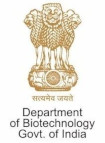Novel Mutations in β- Gene in Indian Patients With Dilated Cardiomyopathy.
| Title | Novel Mutations in β- Gene in Indian Patients With Dilated Cardiomyopathy. |
| Publication Type | Journal Article |
| Year of Publication | 2022 |
| Authors | Rani DSelvi, Kumar AVijaya, Nallari P, Sampathkumar K, Dhandapany PS, Narasimhan C, Rathinavel A, Thangaraj K |
| Journal | CJC Open |
| Volume | 4 |
| Issue | 1 |
| Pagination | 1-11 |
| Date Published | 2022 Jan |
| ISSN | 2589-790X |
| Abstract | Background: Heart failure is a hallmark of severe hypertrophic cardiomyopathy and dilated cardiomyopathy (DCM). Several mutations in the gene lead to hypertrophic cardiomyopathy. Recently, causative mutations in the gene have also been detected in DCM from different populations. Methods: Here, we sequenced the gene in 137 Indian DCM patients and 167 ethnically matched healthy controls to detect the frequency of mutations and their association. Results: Our study revealed 27 variations, of which 7 mutations (8.0%) were detected exclusively in Indian DCM patients for the first time. These included 4 missense mutations-Arg723His, Phe510Leu, His358Leu, and Ser384Tyr (2.9%); a frameshift mutation-Asn676_T-del (1.5%); and 2 splice-site mutations (IVS17+2T) T>G and (IVS19-1G) G>A (3.6%). Remarkably, all 4 missense mutations altered evolutionarily conserved amino acids. All 4 missense mutations were predicted to be pathogenic by 2 bioinformatics tools-polymorphism phenotyping v2 (PolyPhen-2) and sorting intolerant from tolerant (SIFT). In addition, the 4 homology models of β-MYH7-p.Leu358, p.Tyr384, p.Leu510, and p.His723-displayed root-mean-square deviations of ∼2.55 Å, ∼1.24 Å, ∼3.36 Å, and ∼3.86 Å, respectively. Conclusions: In the present study, we detected numerous novel, unique, and rare mutations in the gene exclusively in Indian DCM patients (8.0%). Here, we demonstrated how each mutant (missense) uniquely disrupts a critical network of non-bonding interactions at the mutation site (molecular level) and may contribute to development of dilated cardiomyopathy (DCM). Therefore, our findings may provide insight into the understanding of the molecular bases of disease and into diagnosis along with promoting novel therapeutic strategies (through personalized medicine). |
| DOI | 10.1016/j.cjco.2021.07.020 |
| Alternate Journal | CJC Open |
| PubMed ID | 35072022 |
| PubMed Central ID | PMC8767027 |

